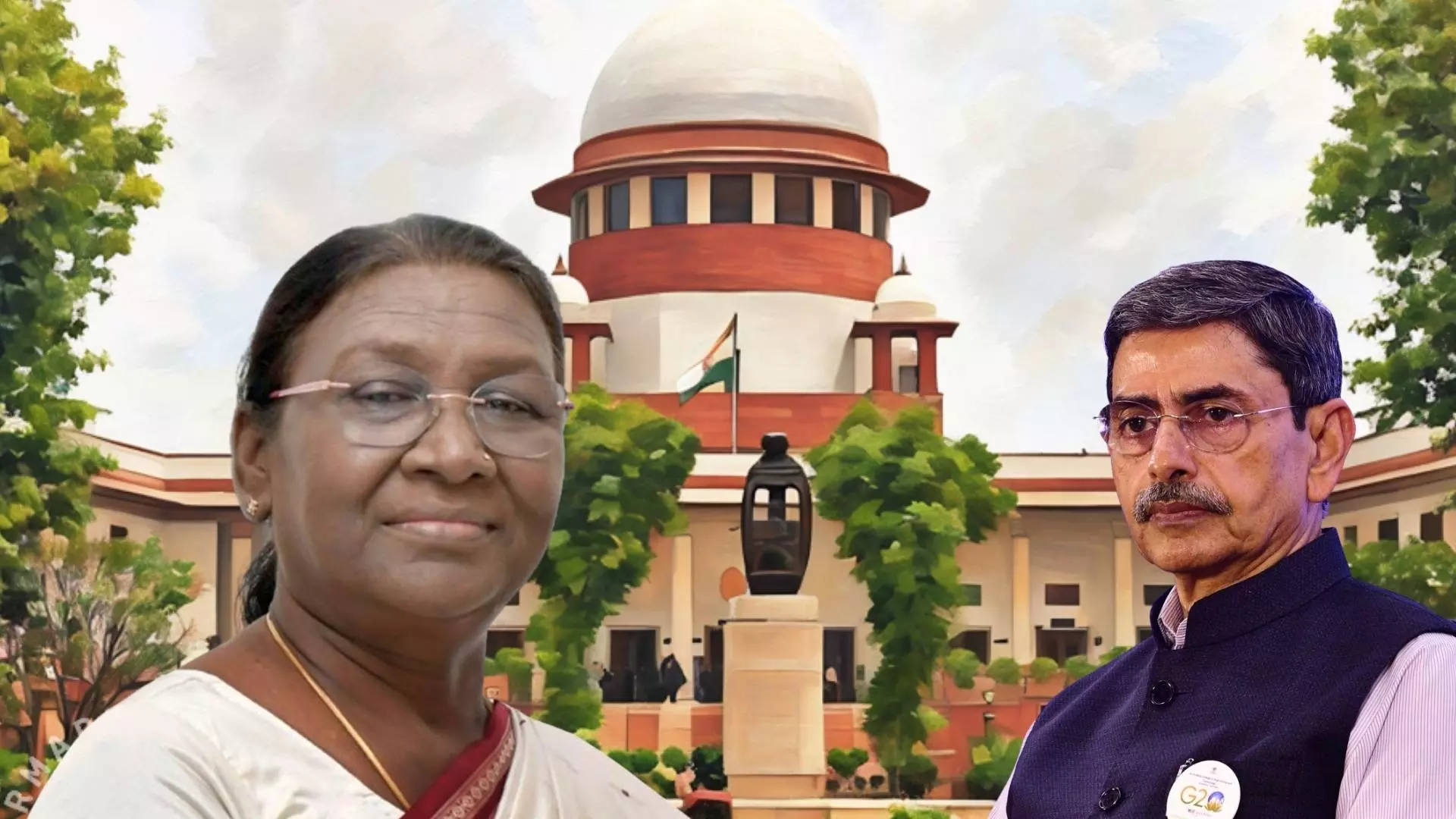
Why SC ruling 'will intensify Centre–State tensions and is a setback for federalism'
In this interview, The Federal’s Political Editor Puneet Nicholas Yadav breaks down the court's verdict and explains its implications for Centre–State relations, especially in Opposition-ruled States

The Supreme Court’s latest advisory opinion on the Governor–President assent issue has major implications for Centre–State relations and the functioning of state legislatures. Puneet Nicholas Yadav, Political Editor at The Federal, breaks down the judgement and its broader impact on federalism.
What does the Supreme Court’s advisory opinion on the Governor–President assent controversy really mean? What are the key takeaways?
This advisory opinion arises from an April judgement by a two-judge bench led by Justice JB Pardiwala in cases filed by the Tamil Nadu government. The core issue was the prolonged tussle between the state government and Governor RN Ravi, who repeatedly withheld or delayed assent to bills cleared by the Assembly.
The Pardiwala bench had set timelines for both the Governor and the President to act on bills sent for assent. A Governor could assent, withhold, refer the bill to the President, or return it to the Assembly. The bench also suggested that in some cases, prolonged inaction could amount to “deemed assent”.
After this ruling triggered debates on judicial overreach, the President made a 14-question reference to the Supreme Court. A five-judge bench led by the current CJI, Justice BR Gavai, has now clarified eight broad points.
Also Read: SC’s opinion on Presidential Reference a shot in the arm for Centre
First, the court says that Articles 200 and 201 do not prescribe timelines for Governors or the President. These provisions allow elasticity and discretion. Therefore, the earlier decision prescribing timelines contradicts constitutional design. No timelines can be set.
Second, the court has categorically rejected the concept of “deemed assent”. According to the court, deemed assent would effectively usurp the powers of the Governor or the President and violate the separation of powers. Courts cannot act on their behalf.
Third, the court has allowed only “limited judicial scrutiny”. The merit of a Governor’s action cannot be examined. The only scope for review is in cases of inordinate delay - though the court has deliberately avoided defining what “inordinate” means.
Fourth, the bench has clarified that the Governor does not have the option of withholding assent without returning the bill to the Assembly. Doing nothing, which was a recurring problem in Tamil Nadu, is unconstitutional and violates federalism because it paralyses the state’s legislative agenda.
Also Read: Governors, President can’t sit on bills indefinitely but timelines can’t be fixed: SC
Fifth, the Governor is not bound by the aid and advice of the state Cabinet when deciding on a bill under Article 200. The Governor’s decision-making on assent is independent.
Sixth, the Governor’s inaction can be scrutinised, but actions - such as rejecting assent, returning the bill, or referring it to the President - cannot be judicially challenged.
Seventh, a bill cannot be challenged in court before it becomes law. Only after it completes the legislative process, including assent, can it be subject to judicial review.
Broadly, these points form the essence of the court’s advice to the President.
How will this advisory opinion affect Centre–State relations, especially in Opposition-ruled states already facing friction with their Governors?
This judgement will reopen several political and administrative challenges for Opposition-ruled states. For years, States such as Tamil Nadu have alleged that Governors appointed by the Centre deliberately sit on bills to stall governance and block legislative initiatives.
With the court refusing to prescribe timelines, this concern only deepens. Limited judicial scrutiny applies only to extreme delays, and since “extreme” or “inordinate” delay is undefined, Governors have wide leeway. As a result, the Centre can continue using Governors as a tool to impede Opposition-governed states.
Also Read: RN Ravi refutes DMK's claim on delaying assent to bills; releases data
The Pardiwala judgement had offered states some relief, but now we are effectively back to square one. The Governor can decide at leisure - or simply not decide at all, barring the mandate to return the bill instead of withholding it indefinitely. This again raises the central question: what happens to governance when the Centre and State are locked in acrimony and the Governor stalls the legislative process?
Opposition-ruled states may now fear that the Centre could go further and introduce constitutional amendments to expand Governors’ powers. With four years of the government’s term remaining, this is not an unrealistic concern.
In essence, this advisory opinion is a setback for federalism and will intensify Centre–State tensions, particularly where political equations are adversarial.
(The content above has been transcribed using a fine-tuned AI model. To ensure accuracy, quality, and editorial integrity, we employ a Human-In-The-Loop (HITL) process. While AI assists in creating the initial draft, our experienced editorial team carefully reviews, edits, and refines the content before publication. At The Federal, we combine the efficiency of AI with the expertise of human editors to deliver reliable and insightful journalism.)

